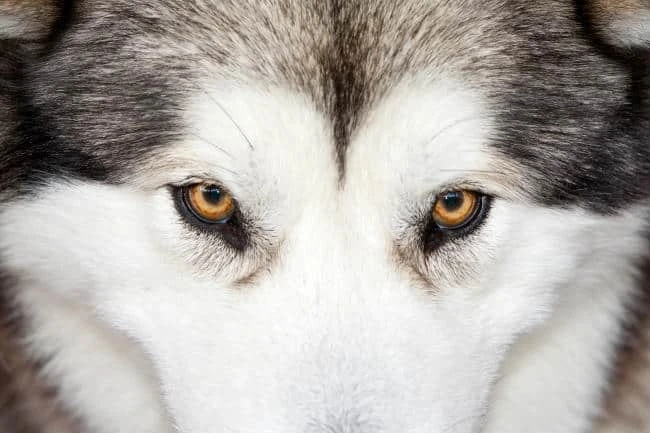Dog Owners Guide To Kidney Stones In Dogs

Kidney stones in dogs is a particularly unpleasant canine illness that is actually more common in females than males. The reason the females are thought to be more susceptible to the condition is thought to be due to them having a shorter urethra.
The cause of this condition is due to a culmination of crystals forming in your dogs urinary tract and kidneys. It is thought that if a dogs urine remains acidic then the minerals are easily broken down as they are more soluble in acidic urine – if however the urine has become too alkaline then the minerals are less soluble causing a build up…
The minerals then start to form into a stone with the stone growing as more minerals pass by and begin to attach to the growing crystal/stone. The minerals that cause this condition are magnesium, calcium, phosphorus and ammonia. Normally these minerals will pass quite happily through your dogs system, passing out of the body in the urine – however in some cases due to the minerals not being particularly soluable they can form kidney stones which may result in serious health problems. It is also worth mentioning that passing the stones can also be extremely painful for your beloved dog.
There are a variety of causes for this condition including certain medications, your dog might be more predisposed to the condition (due to genetics), a urinary tract or kidney infection might also cause kidney stones. Your dog might also develop these stones due to an underlying illness or metabolic disorder. but also due to a poor diet and possible congenital abnormality.
Symptoms Of Kidney Stones In Dogs
Apart from the obvious pain that passing medium to large stones would cause your dog there are other symptoms that you or your vet might notice. The most obvious symptoms of kidney stones in dogs is where blood is found in the urine and also signs of pain when your pooch attempts to empty his bladder. The severity of the symptoms can also vary depending on the size and position of the stones. It is not uncommon to see dogs with kidney stones walking as if they are in pain – you might notice that your dog is crouched in pain or experiencing pain within the abdomen. Other symptoms of kidney stones in dogs can include…
1. Dribbling – your dog might start to dribble urine. Your pooch may also really have to strain when attempting to pass urine.
2. Your pooches urine might be cloudy and have an unpleasant smell.
3. Your dog might to exhibit behavior changes including depression and lethargy.
4. An increased need to urinate is another symptom of this health condition.
5. You might notice that your pooch needs to drink more water – keep a close eye on his water bowl to see how much water he is actually drinking.
6. Watch out for an increased appetite – how much is your dog eating now as opposed to prior to the symptoms starting? Take note of this and let your vet know.
7. Sometimes a dog that is suffering from kidney stones may not exhibit any symptoms at all.
Diagnosing Kidney Stones In Dogs
This health condition will be diagnosed using a variety of methods including a complete physical examination. By examining your dog, asking you questions and looking the past medical history your vet will be able to make a more accurate diagnosis before more invasive medical interventions are undertaken.
Alongside the physical examination the vet might also undertake a complete blood count, a biochemical profile and X-rays. If the stones can’t be located through the X-ray then the vet might undertake an abdominal ultrasound – this will determine where the stones are and how big they are.
Alongside thes diagnostic methods the vet might perform a unrinalysis – this will test the urine for blood, bacteria and anything that is foreign. Finally the vet might look closer at the urinary tract to see if it is infected and may even perform an Excretory urography – this is where a dye is used to highlight where any stones might be present in the upper urinary tract.
Treating & Preventing Kidney Stones in Dogs
Of course it is always better to prevent a health problem rather than end up having to treat it where it has reached a level that is causing your dog pain and discomfort because no dog owner wants to see their pet suffering. For this reason you need to make sure that your dog has access to plenty of fresh water – this keeps the urine diluted and less likely to result in stones.
Give your dog plenty of opportunity to pee outside as this will enable toxins and waste to be passed on a regular basis. Some breeds are more prone to this health problem including Dalmatians and Yorkshire Terriers – although dry dog food has become quite popular sometimes it won’t have as much water that is present in wet dog foods.
Make sure that you take your dog to the vet for regular check ups as this is the optimum way to reduce the chances of your dog developing the problem.
How Are Kidney Stones Treated?
In some cases your dog might be particularly lucky and the stones might disolve through medication and an improved diet.
If they do not disolve and they are causing your dog discomfort then they might be surgically removed – of course this involves certain risks. Another method that is sometimes used to disintegrate the stones is lithotripsy – this medical intervention is more expensive but through using the shock waves the stones can be destroyed.
If after your pet has been taken to the vets it is clear the your pooch has become dehydrated then he maybe put on an IV (fluid therapy – this will rehydrate your pooch).
Anyway we hope you have found our guide to kidney stones in dogs useful but please remember it is only a guide and for information only. Always speak to your vet if you have any worries about your dogs health.
Dog Health Problems Online > Canine Kidney Failure > Kidney Stones In Dogs




